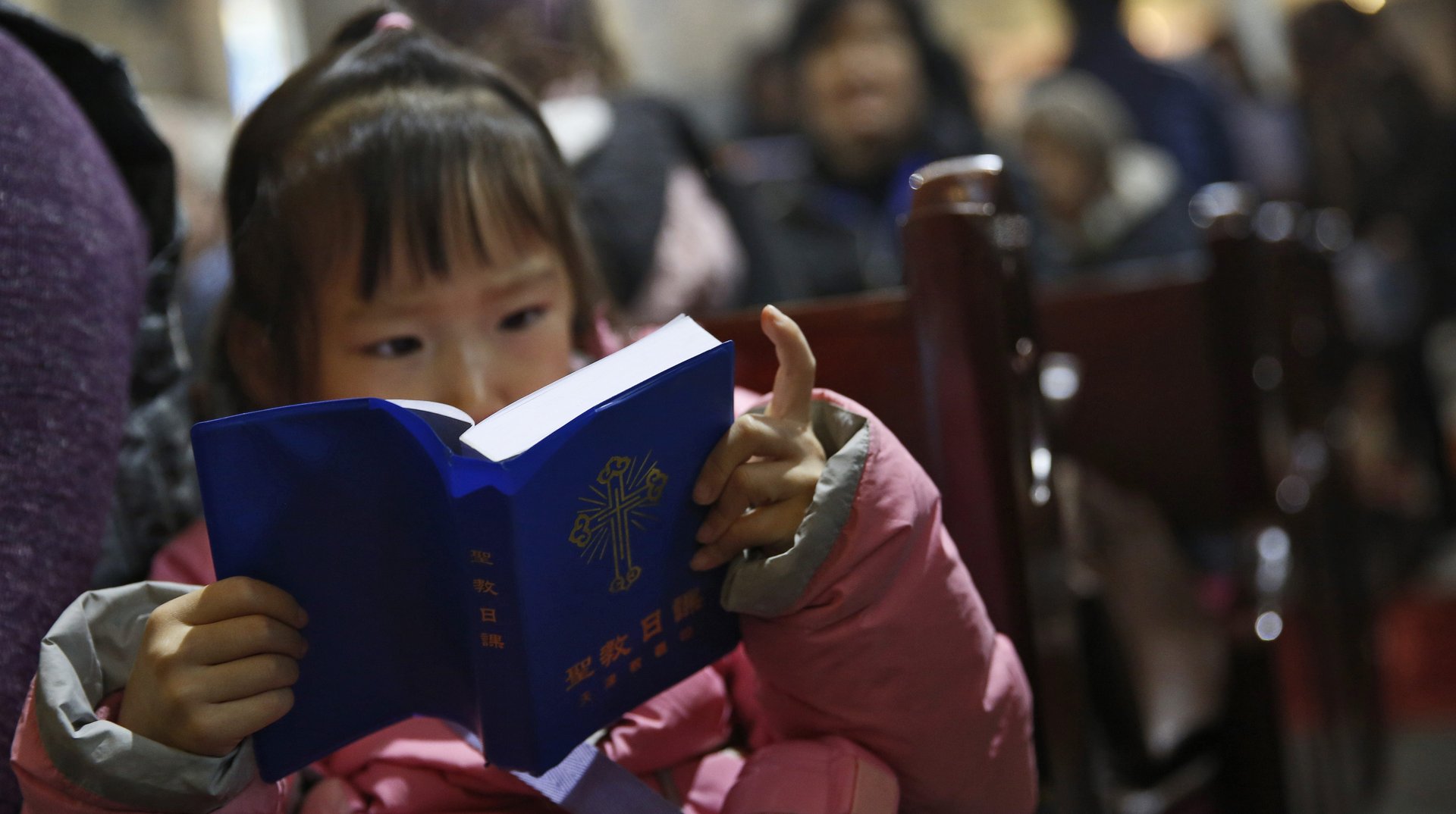The warming relations between China and the Vatican seem to have gone cold
With Sao Tomé and Príncipe the latest country to sever diplomatic relations with Taiwan and recognize Beijing, attention is once again turning to the Vatican, arguably the most important of Taipei’s 21 remaining diplomatic allies.


With Sao Tomé and Príncipe the latest country to sever diplomatic relations with Taiwan and recognize Beijing, attention is once again turning to the Vatican, arguably the most important of Taipei’s 21 remaining diplomatic allies.
The People’s Republic of China expelled missionaries and Vatican representatives from its territory after the Communist victory in China’s civil war in 1949. Since 1951, the Holy See’s nunciature—its official diplomatic mission—has been in Taiwan. But as Pope Francis has been making clear this year, the Vatican is now keen to establish closer relations with Beijing, despite the jitters this has created in some quarters that the Vatican is about to recognize an atheist regime that systematically persecutes Christians.
But the flurry of news earlier this year suggesting that the long-awaited Beijing-Holy See rapprochement was on track now seems to have gone cold, with the key theological issue of who gets to ordain bishops resurfacing as an insurmountable problem. Ordaining bishops is a Vatican prerogative which in China has been taken over by the Chinese Patriotic Catholic Association, a parallel Church that refuses to recognize the Pope’s supreme authority.
The most recent ordination took place in Chengdu and Xichang in November. Greg Burke, the Director of the Holy See Press Office, declared that the Vatican had not approved nor been informed of the ordinations, adding that, “Should such episcopal ordinations have occurred, they would constitute a grave violation of canonical norms.”
Coming so soon after the renewed push from the Vatican for improved relations, the ordaining of the bishops in a manner considered completely illegitimate by the Holy See raises the question of whether China even wants to mend relations at all.
Particularly galling was the presence at these ordinations of Monsignor Lei Shiyin of Leshan, who was ordained without papal approval and excommunicated. Burke reacted to media enquiries about these developments declaring that “the Holy See is certain that all Catholics in China are waiting with trepidation for some positive signs that can help them to have faith in dialogue between the civil authorities and the Holy See and to hope for a future of unity and harmony.”
Lawrence C. Reardon, associate professor of political science at the University of New Hampshire, said that the ordaining of the bishops in the presence of Lei Shiyin was probably due to the fact that the “State Administration for Religious Affairs (SARA) wants to insure that the bishops that had been previously ordained with SARA’s approval will all be recognized by the Vatican. By having Lei participate, Beijing is reminding the Vatican that they have to accept the legitimacy of these SARA bishops, and to lift their excommunication.”
Any further developments might be determined by the outcome of the Ninth Assembly of Representatives of Chinese Catholics, a gathering of the Chinese Patriotic Catholic Association—defined by its own statutes as the “sovereign body” of China’s Catholic Church—which will take place in Beijing on December 26-30. The last time the Assembly was convened was in 2010, and it signaled a low point for Chinese Catholics loyal to Rome. The meeting brings together the bishops that are recognized by the Vatican with those who are not—including the ones that have been excommunicated—together with members of the Communist Party that are officially atheist. According to many press reports, a number of the 45 bishops present in 2010 were forced to participate under duress, some having even been kidnapped. In 2007, Pope Benedict XVI had explicitly addressed the Assembly in an open letter to China’s Catholics, declaring it “incompatible with Catholic doctrine.”
“Both sides are playing the long game,” said Reardon. “The Vatican has a long history of dealing with totalitarian and authoritarian countries such as China, but has taken steps to compromise, such as they had done with Vietnam. Xi Jinping might want to resolve this part of the 1949 Civil War, but not at the cost of control of foreign churches.”
In a demonstration of his effort to improve relations with Beijing, Pope Francis in a recent interview with Spanish media (link in Spanish, paywall) even indirectly praised Chinese president Xi Jinping’s anti-corruption campaign. “Corruption is a fraud against democracy… (in this) the Communists think in the same way as the Christians do.”
The biggest obstacle might no longer be the Vatican’s intransigence, but China’s.